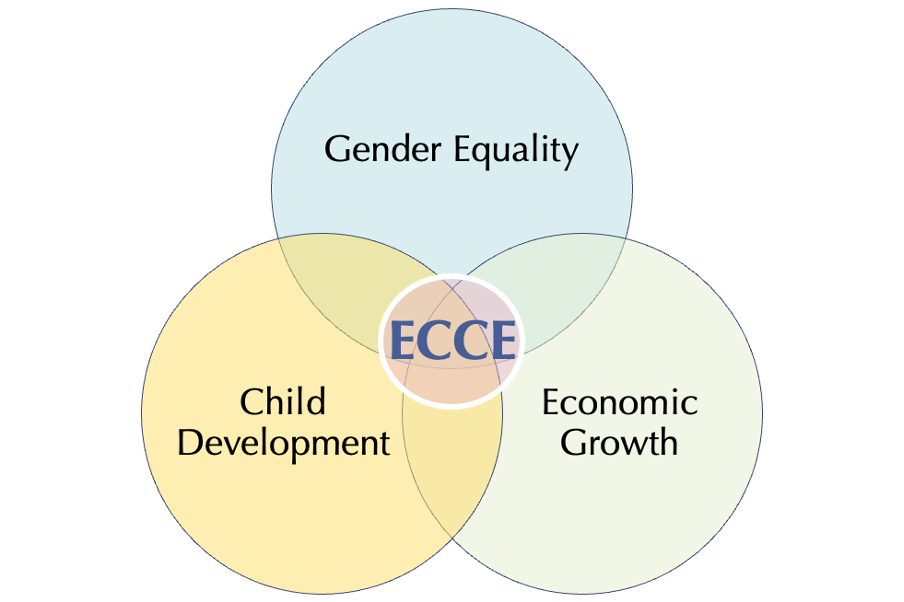We use cookies to analyze traffic and make a better web experience Read more
Learn more about the “Triple Win”

Learn more about the “Triple Win”
Access to professional childcare frees women’s time to work formally and pay taxes, it gives children a head-start, and it’s a large growth-creator, requiring a broad value-chain of goods and services to be developed. We believe we are helping to solve some of the greatest challenges of our time.
Over 600 million women worldwide are unavailable for paid work due to obligations with family and childcare, 40% of children under 5 worldwide lack access to professional childcare, and 80% of them live in lower income countries.
This paints a real picture of the challenges we’re facing, in an often-overlooked area. Partnership for Change has developed a long-term, resilient model, anchored in international research and experience. We have gathered here the key references that informs our work, for those interesting in learning more.
The research of Nobel laureate James J. Heckman shows that the highest rate of economic returns comes from the earliest investments in children. This provides an eye-opening understanding that society today, and particularly international development initiatives, invests too much money in later development, when it is often too late to provide great value. It shows the economic benefits of investing early and building skill upon skill to provide greater success to more children and greater productivity and reduce social spending for society. There are many ways to gauge this, but our work is centred on the “Triple Win” resulting from investment in Early Childhood Care and Education (ECCE).
1. Gender equality
Achieving gender equality depends on women having paid work and the ability to professionally compete equally with men based on merit alone. Access to childcare reduces the “motherhood penalty” – the adverse effect on women’s careers and earnings post-childbirth – by allowing mothers to remain in or re-enter the workforce more seamlessly. It also boosts women’s entrepreneurship by removing a critical barrier to starting and growing their own businesses. Remaining in paid work increases household income and economic independence, enhancing gender equality at home as well as the workplace. Childcare moreover supports women in securing better quality jobs by providing the time and opportunity to pursue more demanding roles within their fields, often leading to increased earnings, job satisfaction, and representation in leadership positions.
2. The economic growth
Business productivity is enhanced by enabling more women to enter and remain in the workforce. First, because it increases the pool of available female talent, and second, because it reduces the cost of recruiting and training replacement employees. This expanded workforce spurs economic growth by increasing consumer spending and creating demand for goods and services. Additionally, the childcare industry itself creates jobs, both directly in childcare services – where most jobs benefit women – and indirectly in related sectors, further stimulating activity and increasing tax revenue. Gains in productivity and competitiveness are crucial if low-income countries are to develop more profitable and resilient economies.
3. Child Development
Early Childhood Care and Education (ECCE) fosters social and emotional development in children, teaching them vital skills such as empathy, emotional regulation, and peer interaction, which are foundational for positive relationships, professional success, and responsible citizenship. ECCE also plays a crucial role in reducing socioeconomic disparities by providing equitable growth opportunities for children from disadvantaged backgrounds, thus promoting social mobility and inclusivity. Additionally, ECCE programs that incorporate health screenings, nutrition support, and education not only ensure early identification and management of health issues but also contribute to the overall health and well-being of children, mitigating the impacts of adverse experiences and fostering healthy development.

